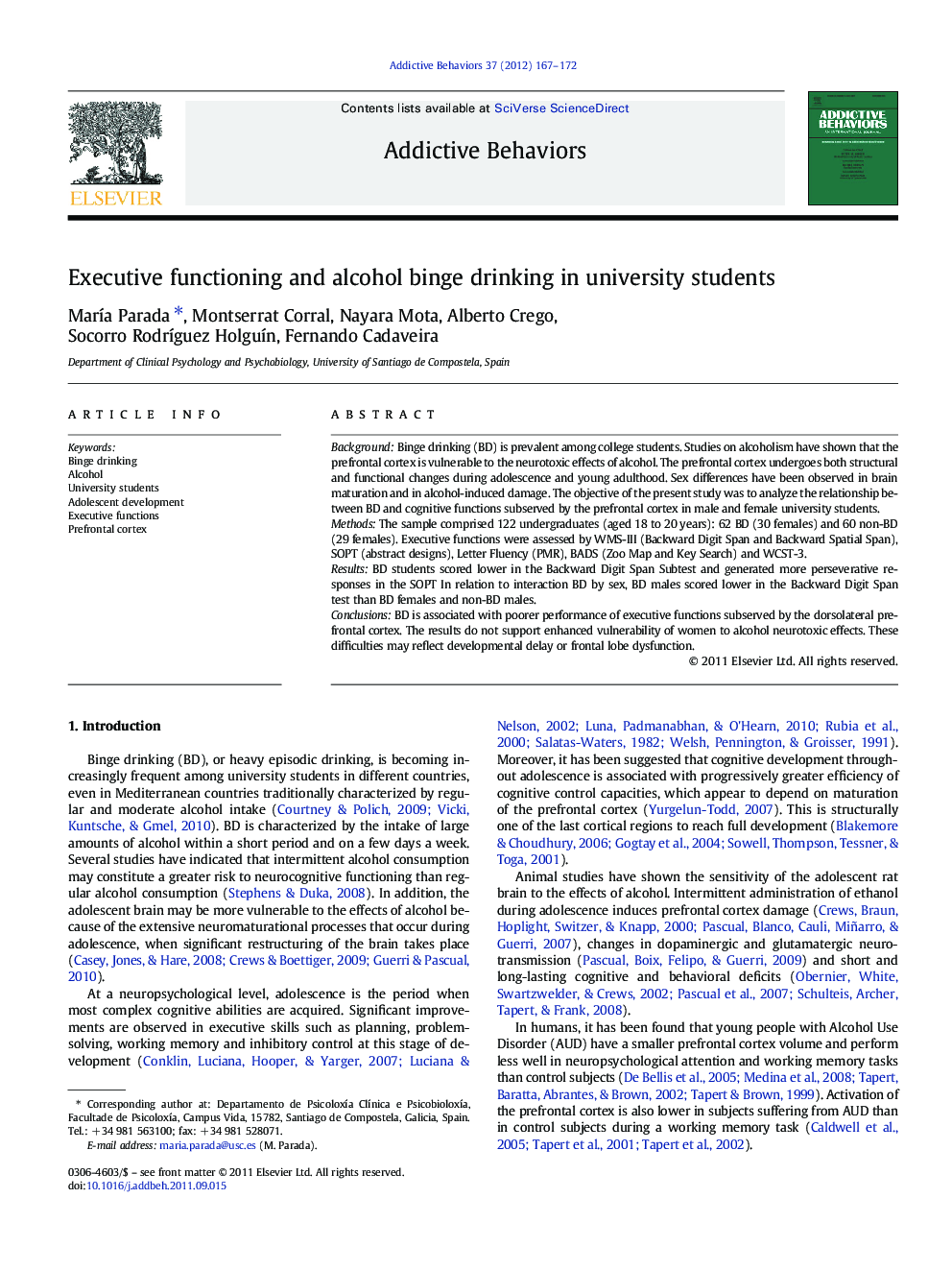| Article ID | Journal | Published Year | Pages | File Type |
|---|---|---|---|---|
| 899442 | Addictive Behaviors | 2012 | 6 Pages |
BackgroundBinge drinking (BD) is prevalent among college students. Studies on alcoholism have shown that the prefrontal cortex is vulnerable to the neurotoxic effects of alcohol. The prefrontal cortex undergoes both structural and functional changes during adolescence and young adulthood. Sex differences have been observed in brain maturation and in alcohol-induced damage. The objective of the present study was to analyze the relationship between BD and cognitive functions subserved by the prefrontal cortex in male and female university students.MethodsThe sample comprised 122 undergraduates (aged 18 to 20 years): 62 BD (30 females) and 60 non-BD (29 females). Executive functions were assessed by WMS-III (Backward Digit Span and Backward Spatial Span), SOPT (abstract designs), Letter Fluency (PMR), BADS (Zoo Map and Key Search) and WCST-3.ResultsBD students scored lower in the Backward Digit Span Subtest and generated more perseverative responses in the SOPT In relation to interaction BD by sex, BD males scored lower in the Backward Digit Span test than BD females and non-BD males.ConclusionsBD is associated with poorer performance of executive functions subserved by the dorsolateral prefrontal cortex. The results do not support enhanced vulnerability of women to alcohol neurotoxic effects. These difficulties may reflect developmental delay or frontal lobe dysfunction.
► We study the relationship between alcohol binge drinking and prefrontal functions. ► Among college students binge drinkers showed lower executive control of working memory. ► This relationship was not modulated by sex. ► These difficulties may reflect developmental delay or neurotoxic effects of alcohol.
